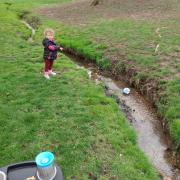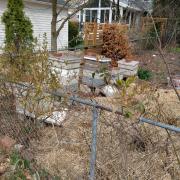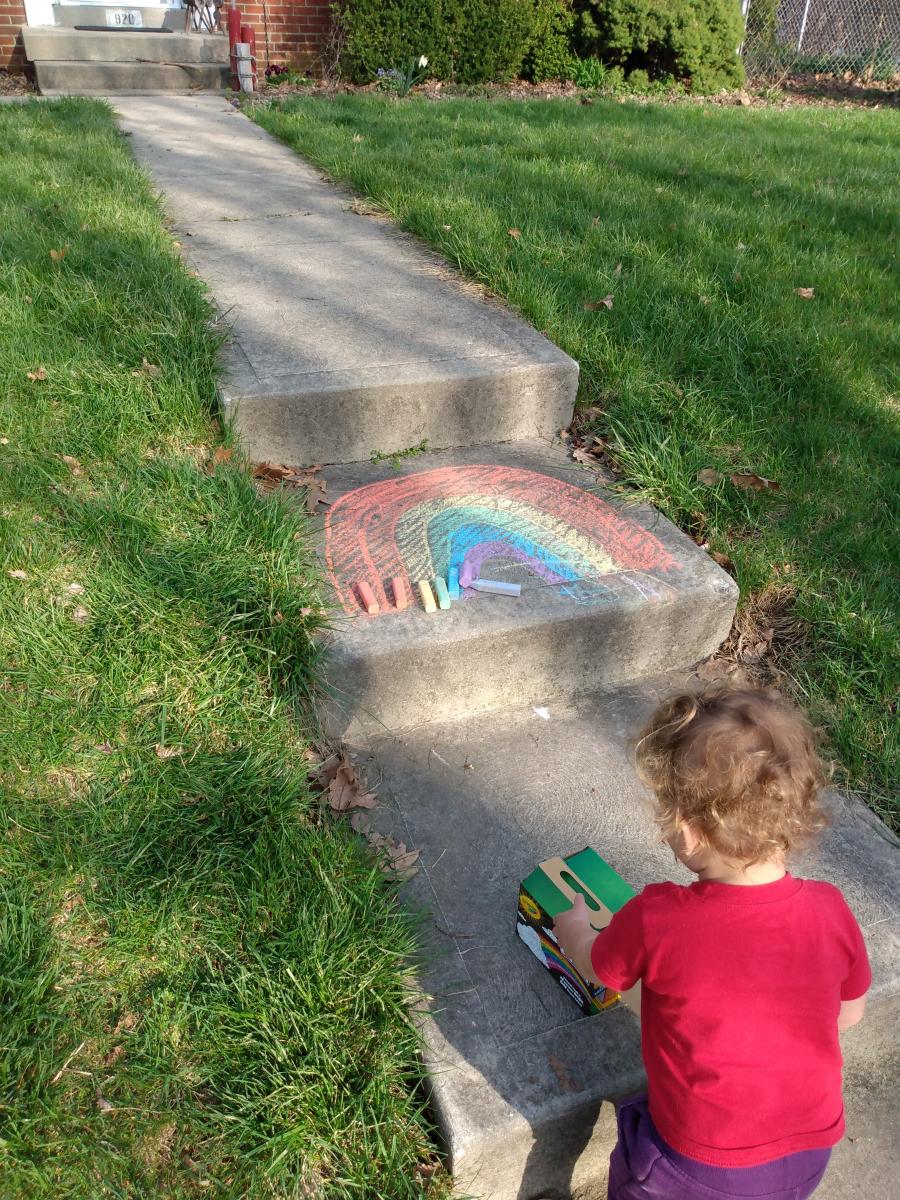Juli, Alana and I have been largely stuck at home with each other for the past 2 months. Normally, we had family and friends help us babysit Alana while we both work. Since the stay at home order, I've been watching Alana in the morning and Juli has handled the afternoon. Most days, Alana and I get out for a nice long walk. This arrangement has worked fairly well, and perhaps unexpectedly, I don't seem to be getting much less done at work. I am able to call into some morning meetings, but the number of meetings I attend has gone way down since I blocked off my mornings. Plus, because my company uses Teams, I am able to respond to urgent messages via the app on my phone.

I've spent a lot of time thinking about this while out walking, and I'm still not sure what the cause of my hidden "productivity" could be. Is it that I just wasn't working that hard in the first place? I never considered myself someone driven to deliver at work, so I have to take that idea seriously. I might have just been goofing around a lot more than I realized.
A more challenging hypothesis is that much of what I do while "working" isn't actually getting things done. Meetings, messages, emails, etc. took up a substantial portion of my pre-pandemic day, much less now, and that sizeable buffer has absorbed most of the time that I'm taking in the mornings. But if the slack, excuse the office pun, in my schedule lets me work half-days every day, should I go back to meetings and email checking once this is done? I'll need a few more long walks to think about that one.

Something related that I've drastically changed my mind on since the beginning of the year is my view of efficiency. Efficiency is a good way to make things better, right?
My growth started with The Unsettling of America, a book I found by chance in a Little Library on a long walk. I had decided to focus on (only) 2 authors in 2020, and Wendell Berry was one of them. In Unsettling, Berry lays out the idea that efficiency is the opposite of nurture, and that as things grow more efficient, they necessarily become more likely to break. An efficient process doesn't have the slack to deliver promised goods while running at 50% capacity, as our just-in-time supply chains have suddenly discovered. An efficient economy only would only consider the net positive of offshoring jobs on the bottom line of the quarterly statements.
The human body has two lungs and two kidneys, and I recognized that the drive for efficiency would necessarily remove spare capacity. One lung and kidney can do the job, and the other is only needed in the event of emergencies. But the emergency has come, and many people are down to their last paycheck.

We're building more redundancies and inefficiencies into our life these days, including spending more for food (Yellowbird CSA, Butcher & Grocer) to build spare local capacity for when it's needed in the future. We are expanding our garden and planting additional fruit trees, and after talking to a neighbor about bees, we'll probably get that bee box out in the yard before too long.
Tim, Alana and Julia Armstrong

